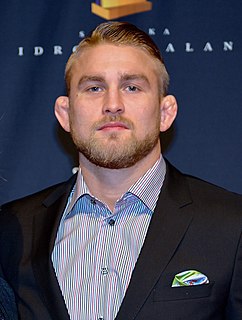Top 47 Quotes & Sayings by Yukimi Nagano
Explore popular quotes and sayings by Yukimi Nagano.
Last updated on April 15, 2025.
There were choices that we've made as a Little Dragon, that we had to make at the time because we needed the money. I think everything has its context. It is way easier to say no to things now then it was five years ago, for sure. Back then we were grabbing at every opportunity we could just to sustain a name and let people know, "Hello, hello! We're here! Look at us!" It's really sort of taken its time and grown, and it's been a very step-by-step process.
A good collaboration I think it's really, truly a vibe thing. The people who are most excited about collaborations are people in the business, people who are thinking, "This is going to be great press," or, "This is going to expose you to all these people you haven't reached before." I prefer not to think like that. I'm more, if you meet the person, you like the person, you've talked to them, you feel connected, you feel like there's a creative exchange, then it kind of happens by itself. I'm open to it, but it has to feel right. If it feels forced, then I'm fearful of doing it.
What does success look like for you? Maybe your definition of success is too different from what the label defines as success. Perhaps your definition of success is simply being able to live off your art for the rest of your days. Don't get caught up in this crazy business. I'd say that's one of the most important things.
There are times when we in Little Dragon write from scratch together, but everyone has their own lives, so it just seems to make sense when everyone starts an idea on their own and we sort of meet somewhere along the way. I'm at the studio all the time because I live there, but the guys will have different schedules. It's easier to start an idea with your own thoughts, rather than having to compromise from the start.
For us, as artists, our goal isn't to forever try to play at the biggest venue ever. Our goal is to make music and keep pushing ourselves creatively, whether it gets attention or not. If we get to do that without being broke? That's our goal. And that may not mean that's going to result in us playing the biggest venue in the world.
I think it is really helpful to see the beauty in every situation. I guess it's being able to see it in unexpected places. If you're fed too much of an image of what beauty is then you might define it as a certain specific thing, but when you have your own idea of what it is, or your own feelings of what beauty is, then it becomes so wide and so indefinable.
It's weird with making music - you can have no vibe while you're working on something and recognize that the music was special afterwards. And it happens to me while I am working on my own music, as well! One minute you hate it, and then a few years you're obsessed with a little beat you did, and the opposite.
Keeping your sanity is sometimes stalling the business aspect of things and being OK with saying no to certain things. Sometimes I just need to be home and write in my diary every day and take long walks. Or just dancing - I have a few dancer friends, and I go to their places and drink tea, and put on these long electronic mixes; maybe smoke a joint, you know? I like to be in nature, and swim in the Swedish sea, and spend time with family.
Now you know you're going to have to play music for the label, you know you're going to have to get an opinion from the manager. Now, I'm so much more conscious and it bothers me. I try to find my way back to writing without being too analytical or not thinking about whether this is good or is it bad.
We've been fortunate enough to have a lot of people to ask us to be on their records - so many artists and musicians that we really respect and look up to. And it's been really special. But from our side, there's so much that we in the Little Dragon are still learning about ourselves writing-wise that I guess we haven't had that need.
Partly I think it's always a challenge to travel a lot. If I could choose to never travel again but still do all my shows - I mean, who wouldn't want to do that? That's the work aspect of it. Maybe people don't think about it this way, but it makes it feel like a job when you're playing late and getting up really early for a lobby call, and flying around.
I think that kind of balance comes with the process of growing together as a band, the Little Dragon. We love to write, we love to create, we love to play live, and I think we love and appreciate what we have together. How that evolves, and how we balance it, is something that's come with time. At the start we were all like, "Tour tour tour. We just want to play. That's all we want to do."
It's not always a conscious thing - I've never been that artist to come to the recording session with a concept of an album; I am a lot more intuitive. I usually start with the music and try to catch a feeling, a gut feeling. And then you need to do interviews and explain yourself more, in words. But during the process it's really about the gut feeling, and it's hard to explain. You're trying to find those moods that make you feel something, I guess.
Maybe it's easier to have that desire guest-spot-packed album, for example, you're a rapper and you need someone to sing the hook. I guess for us, it just kind of feels like we want to explore ourselves more. That sounds kind of cheesy, but I don't know. I have a lot of artists whose music I have this perfect relationship with, and I don't really feel like I need to meet them or get to know them or write with them because of it.
I think we're a little bit protective in that way. You're always trying to balance between what's spreading the word about the band and what's good money and what's a shitty look. Is this good for the longevity of the band? Do people even care these days? We care, but do we care more about the money? We've had a lot of discussions about things. It gets us into a lot of fights, but it also makes you question your own morals in a really good way.
It's always a bit risky, when you put yourself out there with somebody in a collaboration, but I think we learn things every single time, and we come out of it with a new perspective on writing because everyone's process is different. Unfortunately we don't always get to spend time in the studio with those artists - oftentimes it's just sending files online. But both can be liberating and productive in their own way. Some of the best collaborations happen when you're all in a room together.
I think most people get hit by the music first and you can be singing along and realize a song has this melancholy feel. As Swedes, I think we see a beauty in melancholy. You're heartbroken, you're looking out the window and you feel really at ease in the pain. I have so many memories as a teenager with music, sad music, but I was just so into it.
You want inspiration to come in a natural way and let it happen when it's going to happen. The last thing you want is this ghost looming over you saying "it has to be good" - remember that feeling of loving what you do, and don't let the business aspect murder that. It takes away the creativity for me.

















